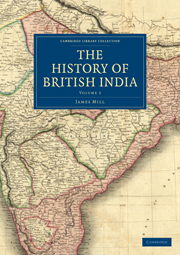Summary
A new scene is now to open in the history of the East India Company. Before this period they had maintained the character of mere traders, and, by humility and submission, endeavoured to preserve a footing in that distant country, under the protection or oppression of the native powers. We shall now behold them entering the lists of war; and mixing with eagerness in the contests of the princes. Dupleix, whose views were larger than, at that time, those of any of the servants of the Company, had already planned, in his imagination, an empire for the French, and had entered pretty deeply into the intrigues of the country powers. The English were the first to draw the sword; and from no higher inducement than the promise of a trifling settlement on the Coromandel coast.
A prince who, amid the revolutions of that country, had, some years before, possessed and lost the throne of Tanjore, repaired to Fort St. David, and entreated the assistance of the English. He represented his countrymen as ready to co-operate for his restoration; and promised the fort and country of Devi-Cotah, with the payment of all expenses, if, with their assistance, he should recover his rights. The war between the French and English had brought to the settlements of both nations in that quarter of India, a greater quantity of troops than was necessary for their defence; and with the masters of troops it seems to be a law of nature, whenever they possess them in greater abundance than is necessary for defence, to employ them for the disturbance of others.
- Type
- Chapter
- Information
- The History of British India , pp. 52 - 92Publisher: Cambridge University PressPrint publication year: 2010First published in: 1817



